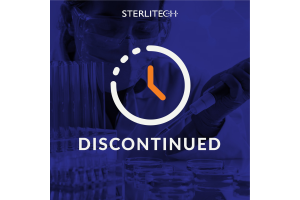What is Exosome Filtration?

Exosomes are tiny extracellular vesicles enclosed by membranes, which are created in the endosomal compartment of most eukaryotic cells. They can be found in biological fluids such as blood, urine, and saliva, and are involved in multiple physiological and pathological processes. They have gained significant attention in the field of biomedical research and clinical applications in areas of regenerative medicine, cancer research, drug delivery, and more due to their ability to transfer proteins, lipids, and genetic materials between cells.[1]. Exosome research is a rapidly evolving field, and ongoing studies continue to uncover new applications and therapeutic possibilities
Isolating exosomes from biological samples such as tissue culture supernatants, blood, urine, or other bodily fluids involves several methods, and filtration is one of the most commonly used methods. However, traditional filtration, which involves centrifugation to clarify the sample, followed by filtration through a porous filter membrane to further purify the sample can potentially damage the delicate exosomes, due to the type of filter membrane used..
Benefits of Tangential Flow Filtration vs Traditional Filtration
In traditional filtration, also known as direct flow filtration, a sample containing concentrated exosomes is passed through a porous filter membrane with a specific pore size. This process allows smaller exosomes to pass through the filter, while larger particles are trapped and retained by the filter membrane. However, the method has a disadvantage of large molecules accumulating on the membrane's surface, forming a filter cake layer. This layer thickens with prolonged filtration, leading to a reduction in filtration efficiency and lifespan of the filter membrane [2].
Tangential flow filtration (TTF) is a filtration method that directs the sample flow horizontally across the membrane at an oblique angle. This process allows for a continuous flow of the sample that not only facilitates filtration but also rinses the membrane surface as it circulates through the system.
This reduces the buildup of large molecules and helps prevent concentration polarization that can occur due to reduced flow rates. Consequently, a consistent flow rate is maintained, which significantly prolongs the lifespan of the filter membrane.
Another advantage of tangential flow filtration over traditional filtration is that it enables simultaneous concentration and diafiltration of the sample, while traditional filtration requires a sample to undergo centrifugation to concentrate and filtration separately.
TFF Applications
TFF offers great versatility, making it ideal for use in various industrial and scientific processes that require filtration and purification of biomolecules. Due to the advantages mentioned above, tangential flow filtration is increasingly becoming the preferred choice over traditional filtration in the fields of biotechnology and biomedicine. As a result, it is now widely used in hospitals and the pharmaceutical industry.
While tangential flow filtration offers several benefits over traditional filtration, the Tanfil 100 TFF System is particularly suitable for exosome filtration due to its gentle filtration process, which reduces the likelihood of damage to exosomes and ensures the integrity of biological samples being processed.
Additional key benefits include:
- Multi-purpose System: With the tangential flow filtration technique, the system enables simultaneous concentration and filtration of the sample.
- High Flow Rates: The Tanfil 100 TFF System is capable of processing large volumes of biological fluid quickly and efficiently.
- Reduced Fouling: As the sample flows parallel to the membrane, membrane fouling is prevented, thereby increasing the lifespan of the membrane.
- Flexibility: The Tanfil 100 TFF System can be used with a variety of different tangential flow filtration membranes, giving users the flexibility to select a membrane that best suits their needs.
Contact our sales team to learn more about how the Tanfil 100 TFF System can benefit your application.
Sources:
- Guillaume van Niel, Gisela D'Angelo and Graça Raposo. Shedding light on the cell biology of extracellular vesicles. https://hal.science/hal-02359760/file/NRMCB%20MAA.pdf
- Tangential flow filtration. https://www.rocker.com.tw/en/application/tangential-flow-filtration/
- Most Viewed Blog Articles (5)
- Company News (284)
- Emerging Technologies (64)
- Microbiology and Life Science News (93)
- Water and Fluid Separation News (97)
- Filtration Resources (93)
- Product News (19)

![Join Sterlitech at BIO 2024 [Booth #5558]: Exploring the Future of Biotechnology](https://www.sterlitech.com/media/blog/cache/300x200/magefan_blog/b4.jpeg)




